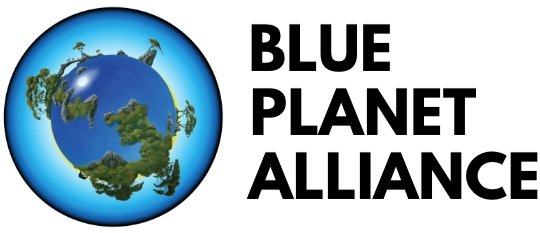Major News from the Pacific
Tonga Is Latest Country to Announce Switch to 100% Renewable Energy
One more country has answered Blue Planet Alliance’s call to transition to 100% renewable energy.
The Kingdom of Tonga yesterday announced that it would be making the switch away from dirty energy and to clean, renewable resources, by 2045.
Tongan Prime Minister Siaosi Sovaleni made the announcement at an event last night held during UNGA (the United Nations General Assembly — the annual autumn convening of all the world’s heads of state) and Climate Week NYC. The event was the Island Resilience Forum at the SDG Lounge, held in UN Plaza, and hosted by the Pvblic Foundation, the Kingdom of Tonga, and EarthX. Blue Planet Alliance was an event partner, along with Peace Boat US and the Global Island Partnership (GLISPA).
Tonga joins the U.S. State of Hawaii (which has a legislative mandate to transition to renewable energy by 2045), the nation of Palau (whose President, Surangel Whipps, Jr., has committed to transition to clean energy by 2032), and the U.S. territory of Guam (which has signed a law requiring 100% of energy usage to be renewable by 2045).
Tonga is consistently ranked in the top three of countries on the planet most vulnerable to climate change. The Pacific Island nation is situated in the “Ring of Fire,” an area with a heavy concentration of volcanic eruptions and earthquakes, and then subsequent tsunamis.
Pictured, top left: Blue Planet Alliance Founder Henk Rogers; top middle: SIDS Dock Secretary-General Dr. Al Binger; top right: GLISPA Executive Director Kate Brown; bottom left; Tonga Prime Minister Siaosi Sovaleni, right.
Not only do islands that continue to use dirty energy contribute to their demise by harming the planet. They are also spending billions of dollars on fossil fuels, when they could be making money with renewables. Tonga’s current energy supply is almost exclusively imported diesel. Hawaii was spending $5 billion a year on importing fuels. But Hawaiian utilities — which initially opposed the 100% bill — have projected they will now make profits from renewables. Tongan renewable sources could include not only wind and solar photovoltaic power, but also geothermal energy and some innovative new processes, including ocean thermal energy conversion (OTEC) and wave power.
“Tonga’s decision to go renewable is a wonderful first step for the rest of the Pacific island community,” said Lelei LeLaulu, Advisor to the Global Ocean Energy Alliance, when reached for comment. “For every shot fired in Ukraine, Pacific island countries are the collateral damage because of the increase in oil prices.”
In addition to Prime Minister Sovaleni, last night also saw presentations and insights from Dr. Al Binger, Secretary-General of SIDS Dock (the UN-recognized organization that represents 32 Small Island Developing States and their energy concerns); Kate Brown, Executive Director of GLISPA; and a final inspiring keynote by Henk Rogers, Founder of Blue Planet Alliance.
“Small Island Developing States are paying the highest prices in the world for imported diesel,” Binger told Blue Planet Alliance. “That contributes to climate change and deprives the island governments of their foreign exchange, which they need for sustainable development. They have all the reason in the world to transition to a new paradigm.”
To build momentum globally, we need to start somewhere, and a growing cohort of Small Island Developing States can help build momentum with an entire region, and eventually, the rest of the world.
“We’re starting with Small Island Developing States,” said Rogers, “because they are suffering the most, with the high prices of oil and diesel. We would like to help them make the decision that they’re going to go 100% renewable energy. That mandate is supported not just by the executive, but by the legislature, by the people, and even by the utilities. … It’s a win-win for everybody.”


